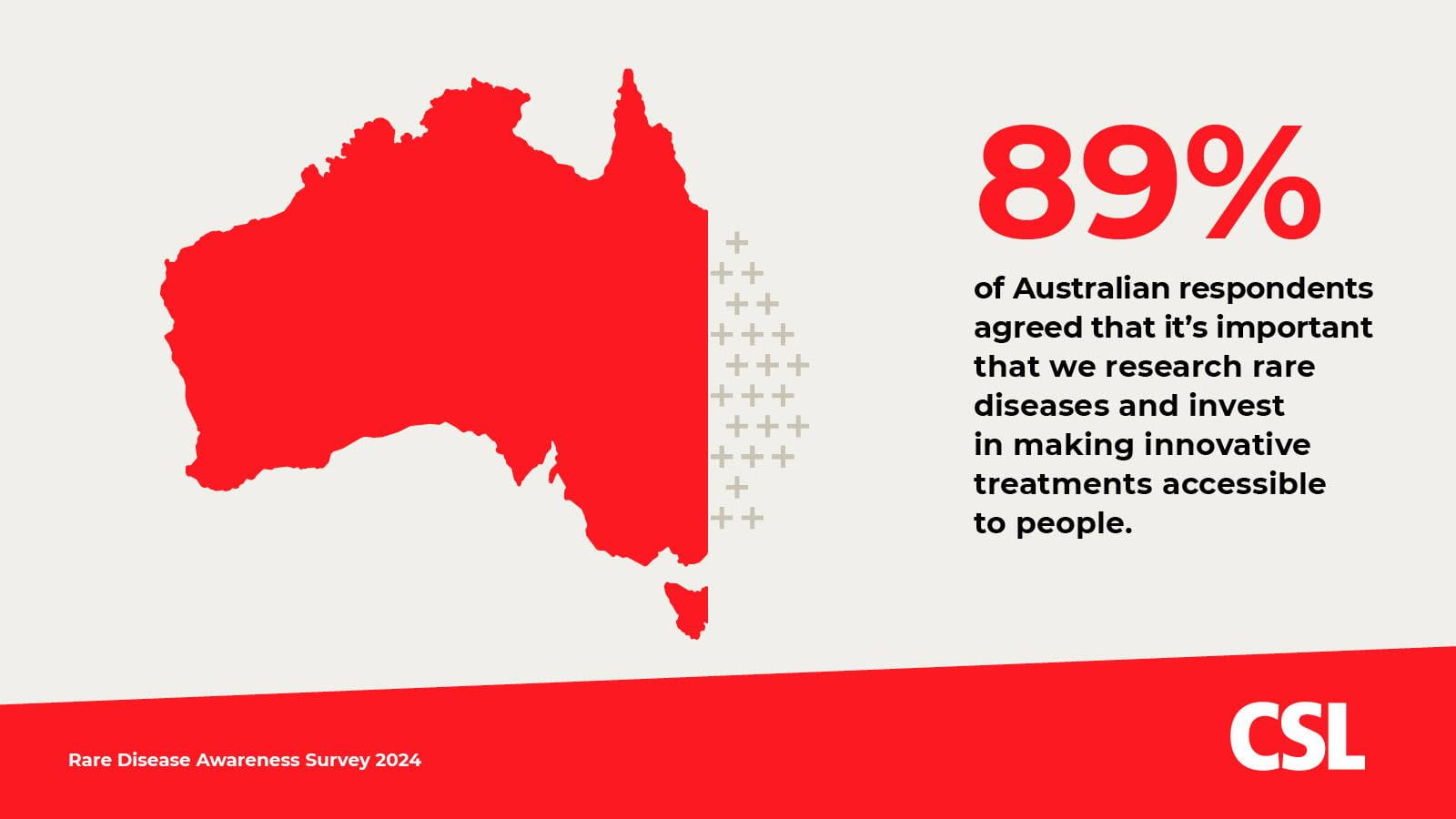Most Australian adults don’t know the full impact of rare diseases, with many believing they affect far fewer people than they do: 300 million worldwide.
A new survey commissioned by CSL this month ahead of Rare Disease Day (29 February) of 1,046 Australian adults, found that 46% of respondents thought the number was between 300,000 and 3 million. Australia defines a rare disease as a condition that impacts fewer than five in 10,000 people – another fact that eluded all but 14% of survey participants.
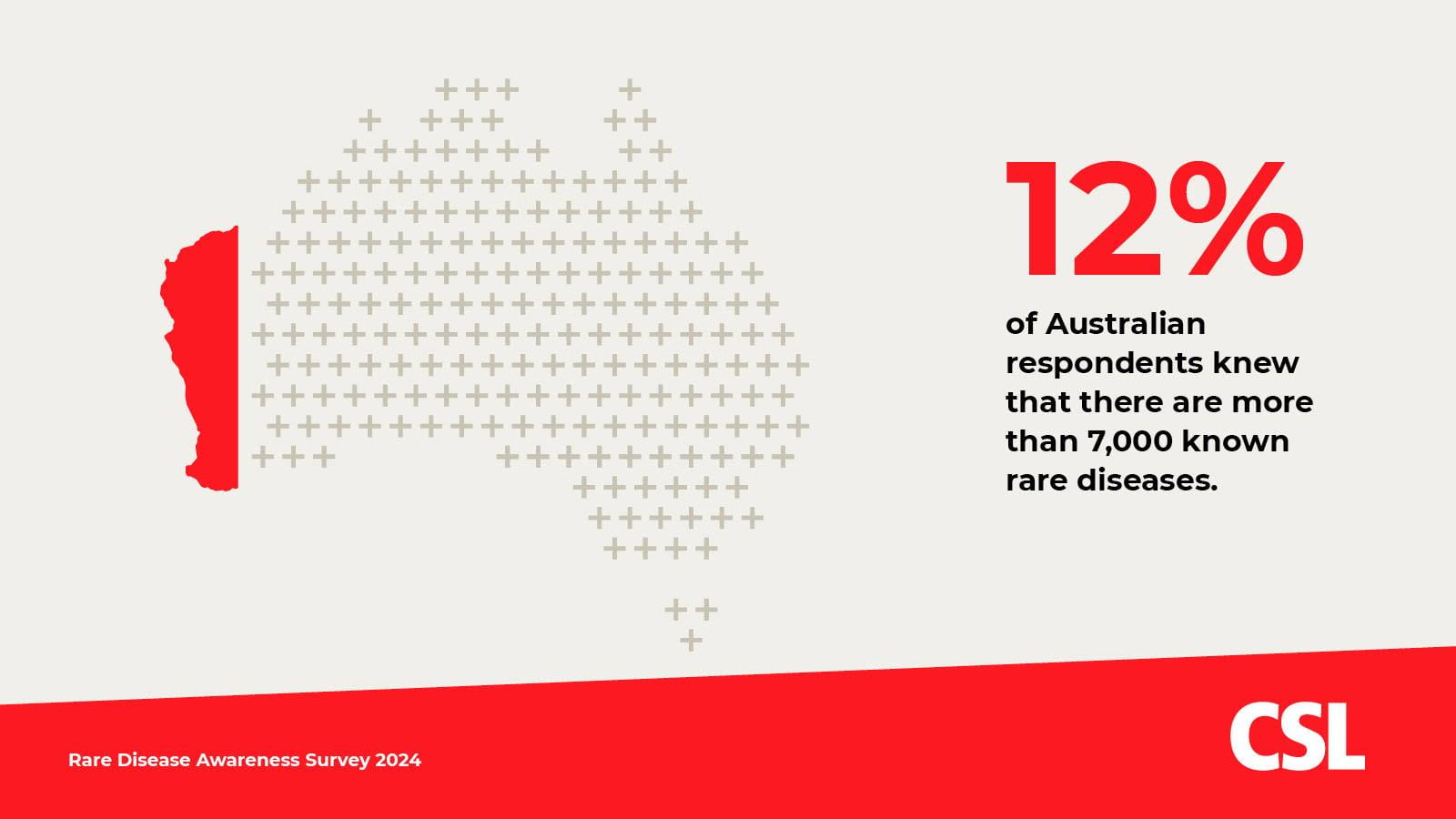
About 20% said they knew someone with a rare condition. Only 12% of survey respondents knew that more than 7,000 rare diseases have been identified. Presented with a list of seven rare diseases, about a quarter of survey respondents said they had not heard of any of them.
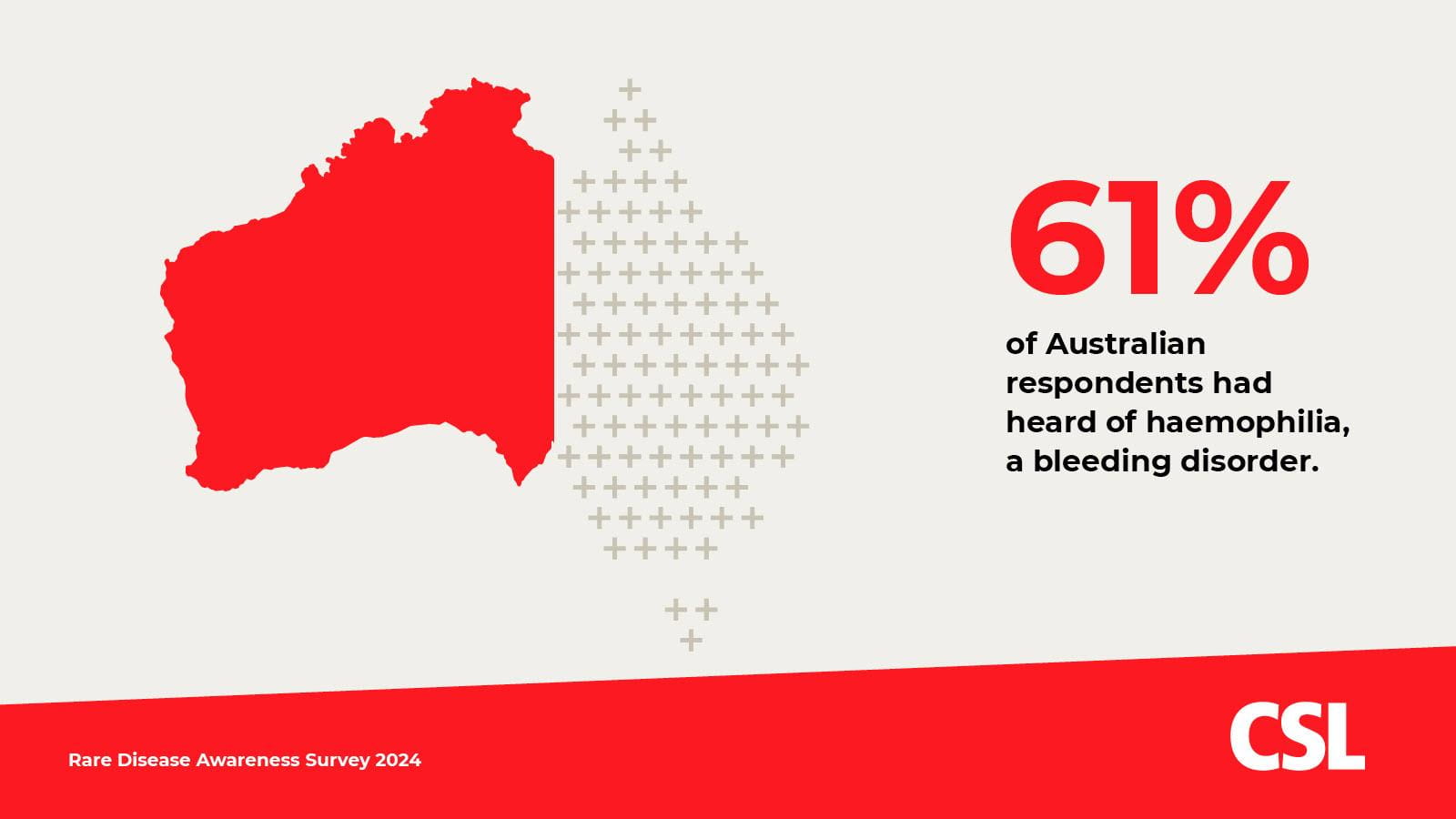
Just over six in 10 (61%) said they had heard of haemophilia, a bleeding disorder, and 22% had heard of primary immunodeficiency, a group of diseases related to an impaired immune system. Twelve percent or less knew of von Willebrand Disease (12%); Hereditary Angioedema (HAE) (7%); Chronic Inflammatory Demyelinating Polyneuropathy (CIDP) (11%); ANCA-associated vasculitis (5%); and Alpha 1 Antitrypsin Deficiency (5%).
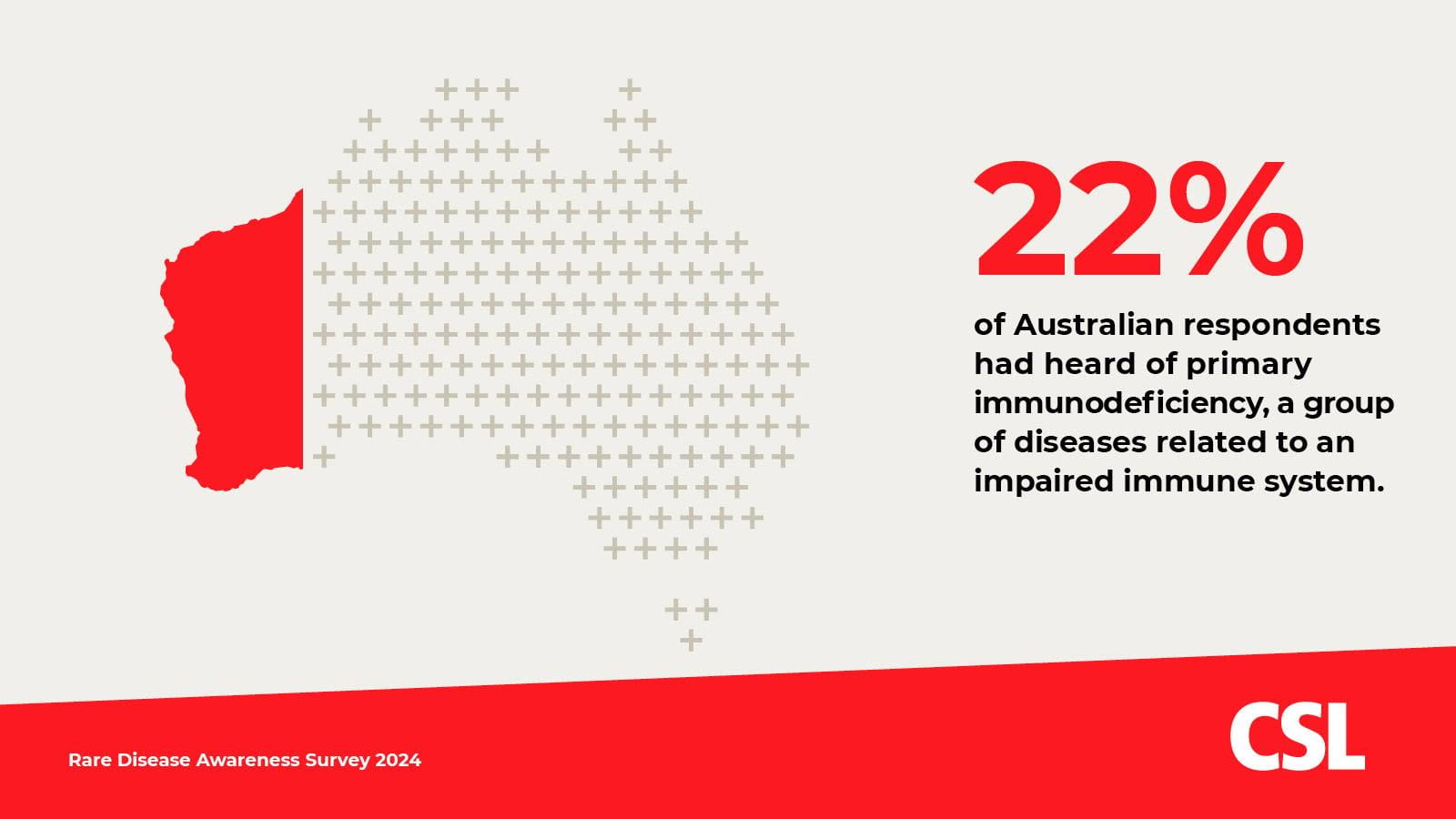
The results among the general public are not surprising. Even medical schools have identified a knowledge gap about rare diseases among doctors in training and have launched programs to address it.
Making the public more aware of rare diseases can help patients who struggle with undiagnosed conditions, but it’s daunting because there are so many different conditions – most of which lack treatments. It can take years to get an accurate diagnosis and, even once they are diagnosed, rare disease patients can feel isolated without an easy route to find a community.
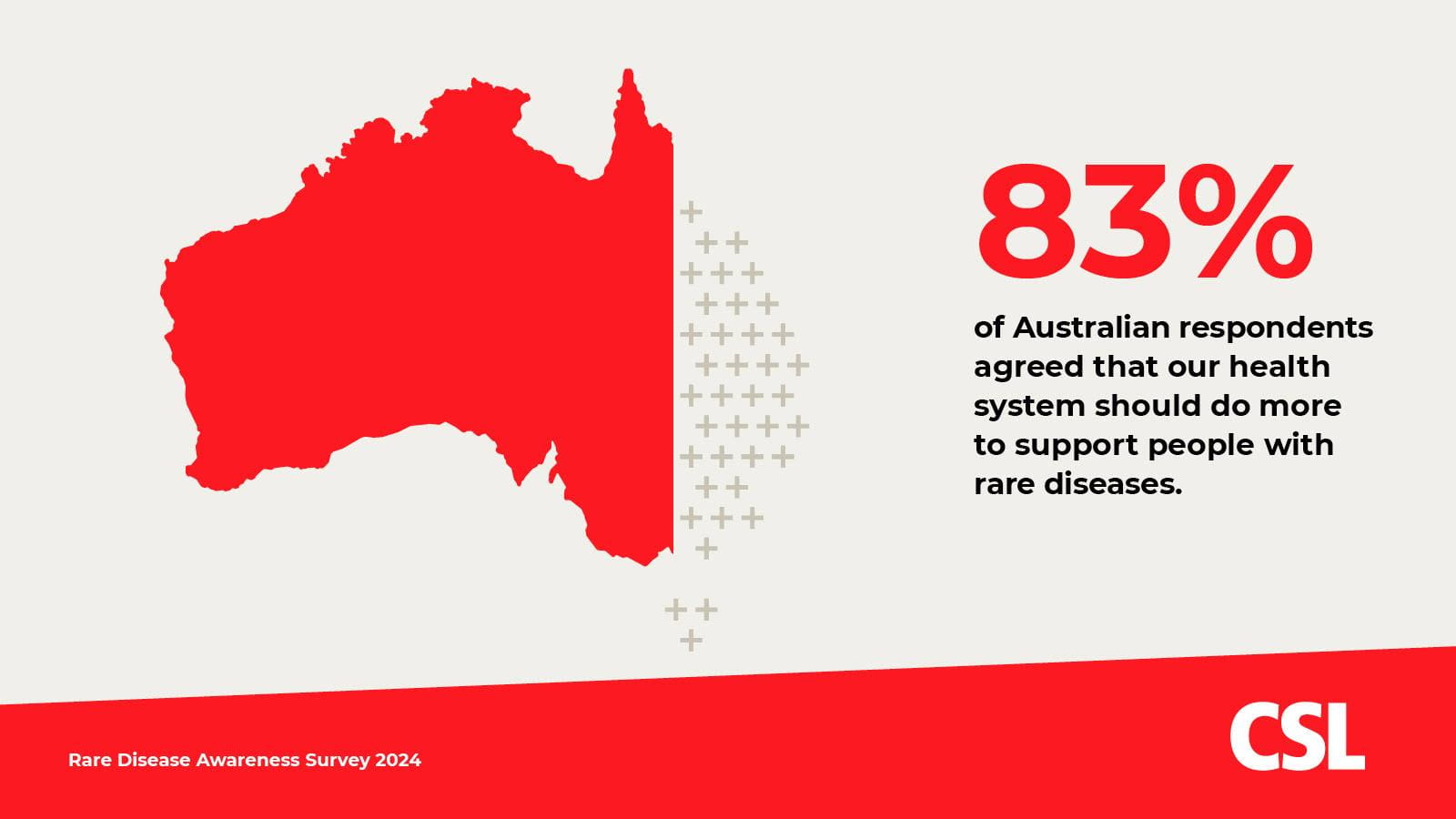
Groups like Rare Voices Australia help unite patients and advocates from many rare disease communities. CSL, a global biotech, makes medicines that treat rare diseases and participates annually in Rare Disease Day events, including the Black Pearl Awards and the Global Chain of Lights.
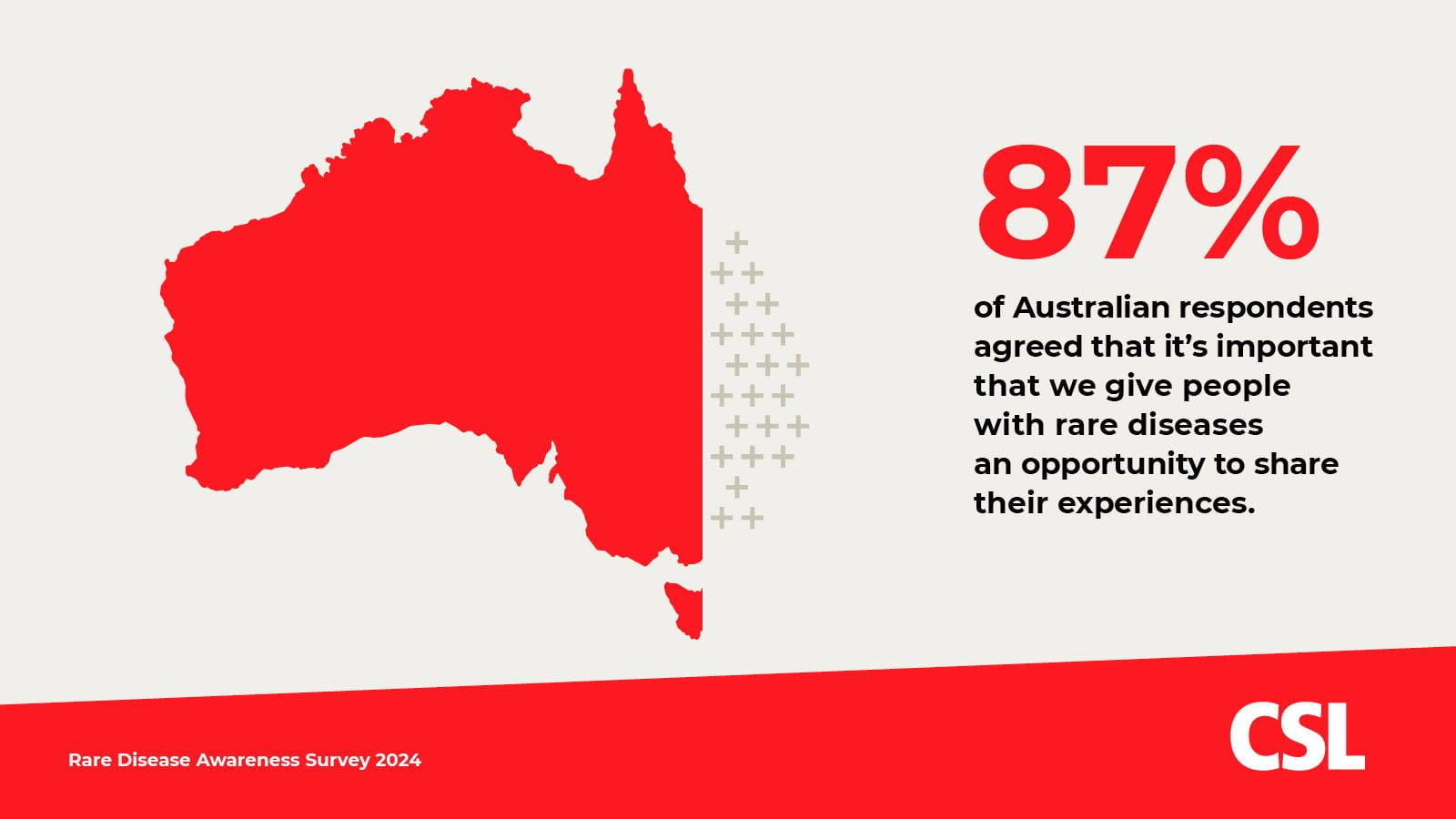
Only 8% of Australian survey respondents had heard of Rare Disease Day, celebrated on Leap Day this year, the rarest calendar day. Though the survey found knowledge gaps among Australian adults, a majority of participants voiced support for patients who live with rare conditions. More than 80% agreed with these statements:
- Our health system should do more to support people with rare diseases. (83%)
- It’s important that we research rare diseases and invest in making innovative treatments accessible to people. (89%)
- It’s important that we give people with rare diseases an opportunity to share their experiences. (87%)
CSL commissioned the same survey in United States, where results were similar. See the U.S. results.
The Australian survey was conducted by YouGov on behalf of CSL. All figures, unless otherwise stated, are from YouGov Plc. Total sample size was 1,046 AU adults aged 18+. Fieldwork was undertaken in February 2024. The survey was carried out online. The figures have been weighted and are representative of Australian adults (aged 18+).



